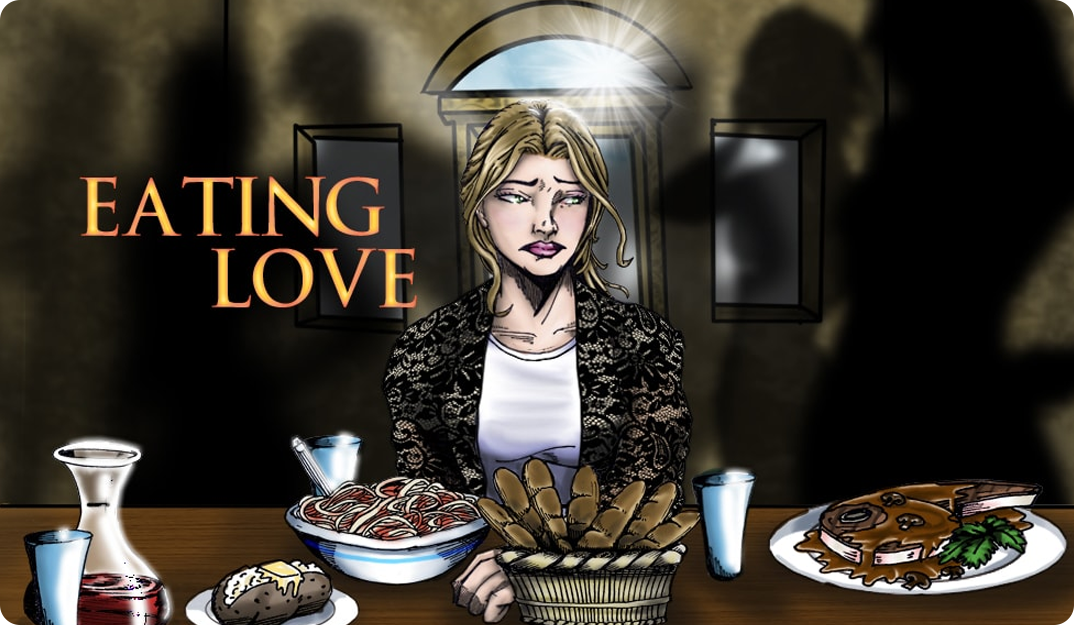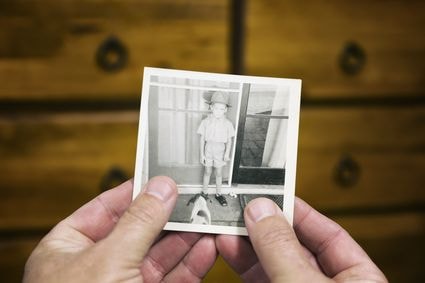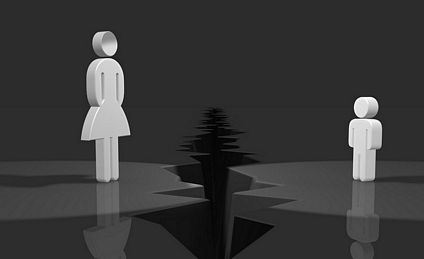The first rule I implemented in managing my emotional eating to lose weight was that I couldn't suffer.
Another way of saying that is I still had to get as much enjoyment, satisfaction and grounding with any change in my diet that I used to get before. For example, eating celery instead of date squares just doesn't cut it.
So how would I do this without giving up pizza?
Well, I knew that if I could control my insulin, I could control my weight. Most diets that work do so because they impact our insulin in some way. (If you'd like to understand this better see the site's article on insulin).
Celery doesn't up our insulin levels at all, date squares do. But I knew I couldn't eat celery and be satisfied, so I had to find a way around this, and the way around it, metaphorically, was to eat date squares that didn't up my insulin levels.
In other words cheat the system. Yes, I'm talking about sort-of, kinda Keto, low-carb 'style ONLY'.
... I never went on a Keto or Atkins diet. I did my own thing and just used some of their principals. I will say that the HOW (implementation) was more important than the WHAT (types of foods) although the what was important too.
The how included a strategy that didn't involve the sorrow and disappointment of watching the meals I looked forward to eveyday disappear from my diet plan, only to be replaced with grapefruit.
I had 3 mostly carb meals per day and then dessert at night.
That's an ultra carb heavy week. Lots of high carb meals which was not good. So I knew I had to make changes and I decided that the easiest way would be to start with breakfast because that was my least favorite meal. If I knew I could enjoy my lunches and dinners and desserts then it wouldn't be painful to modify my breakfast to something that wasn't what I was used to, but was still tasty and satisfying.
So my first modification was to have 2 hard boiled eggs and 2 slices of KETO biscuits, [It's easy to make that toast in the microwave - see recipe here] and honestly, it was pretty easy. I enjoyed my breakfast and still looked forward to the rest of the food I would eat that day.
In those first 2 weeks I lost a couple of pounds and I didn't feel like I was on a diet. But my body had a different experience, it experienced low insulin levels for 15 hours in a day instead of 11 - I stopped eating at 8pm nightly and had breakfast at 7am = 11 hours fasting. Four extra hours of low insulin makes a difference.
I was excited. What else could I do?
Next I eyed desserts. No, not cutting them out (c'mon now), but replacing them with desserts that are just as good but have no to low carbs in them (check out the recipe section for ideas). Now before you think they must have been boring, take a look at this collage I made of the types of desserts I was eating:

You see what I mean? It's not so bad. This one change was huge! After a month with the breakfast and dessert switch combined I lost 10 lbs. I was hooked which was great, but more importantly my insulin levels were low now for 17 hours a day AND I had some new diet habits (breakfast and dessert) that I could comfortably keep the rest of my life, without pain or without feeling deprived.
So now my weekly diet plan looked different.
A lot less high carb meals (and less use of my awesome retro toaster :( ...). Do you see where I am going with this? Lunches eventually turned into chicken/bacon/tomato/mayo sandwiches on keto bread with dinners remaining the same as they always were - protien, carbs (rice, pasta, potatos, bread) and vegetables. And desserts that involved anything that had fruit like cranberries, to chocolate like this mousse
So I didn't have to give up on carbs entirely and I still lost weight. How much ...
50 lbs within first 6 months
That's still eating bread or rice or pasta everyday + desserts and all meals being delicious and satisfying. I keep repeating that because it's so important. I firmly believe that the reason most diets fail is because people try to will their way out of them and can only tolerate the suffering for so long before they cave. Then they rationalize away their decision saying something like, "Well, it probably wasn't the diet for me anyway," or, "I found a better one that has more science to back it up." What they really should say is, "That diet I gave up on was too painful."
I lost 50 lbs in 6 months because I was able to stick to it, and I was able to stick to it because I'm better than everyone else. :) No, it's because it was easy, I didn't suffer. I did 2 things:
1- I replaced most of my carbohydrates with tasty alternatives to keep my insulin low.
2- I made sure to plan ahead and buy grocery items and ingredients I needed to have a good week.
Here are some examples of foods, desserts and drinks I enjoyed (and used) in that 6 month time span.
DRINKS

No calorie drinks helped a lot and there were so many that I enjoyed:
- Diet lemonade, both store bought and homemade with sweetener; one of my favorites
- Zero colas
- Gatorade Zero
- Diet cranberry juice (how to drink the pure stuff here)
- Ice tea with sweetener
- Keto strawberry smoothies
- Flavored sparkling water (no cals)
- Diet orange anything
I wouldn't have one can or small bottle either. I'd fill up a big gulp cup and go to town. Hey, any quantity multiplied by zero is always going to be zero, so drink away. I sometimes wouldn't need dessert that night because I'd have a constant drip of flavor going into my mouth all evening. Try zero drinks out, they're incredibly helpful.
FOODS

You can see here that there's lots of tasty foods to eat and satisfy you when carbs are not the focus:
- Chicken wings (breaded ) with barbecue sauce (which has sugar in it by the way )
- Grilled steak with sides like Greek or Caesar salad
- Vegetable platters with high-fat dips like guacamole and sour cream based dips
- BBQ chicken with rice
- Cheese and deli platters
- Fried chicken (without sides )
- Large salads with high-fat dressings and lots of grilled chicken
- Moderate amounts of rice, pasta and breads, or large amounts of Keto equivalents.
This is just a sample of types of foods that I would eat. I was able to really look forward to my dinners each evening and never really paid attention to quantities or calories (within reason) of most my foods except for carbs. I ate vegetables and dips or salads as much as I wanted to, and often the portions would be larger than family-sized servings. When it came to meats and poultry I would eat until satisfied, and when it came to high-fat foods like cheeses and cold cuts I would eat a small to a moderate amount. They're very heavy and salty foods anyway.
DESSERTS

Most of the desserts I ate contained low or no carbohydrates but were still awesome:
- Jello chocolate pudding sweetened with sweetener, super simple and fast to make (I used whole milk and often ate the whole bowl )
- Jello gelatin desserts again sweetened with sweetener. These have almost no calories in them so go to town.
- Cheesecake made Keto style. Tastes almost as good as the real thing you won't care
- Fruit salad. Fruit has a moderate amount of carbohydrates but its sugar doesn't spike your insulin the way normal sugar does.
- Peanut butter balls with cream cheese and sweetener.
- Keto brownies
- Blueberry muffins made with almond flour and sweetener.
- Homemade chocolate ice cream made with sweetener.
- Large bowl of popcorn with real butter
The Jell-O and the pudding were by far my favorites because they were so easy and quick to make and gave me the most return on my investment so to speak. The peanut butter balls were great because I only needed one or two each night and they could stay in the fridge for good while. Sometimes I'd have the entire bowl of Jell-O and two peanut butter balls to satisfy that "urge" that emotional eating brings forth. The large bowl of popcorn isn't exactly Keto but I'd have it once in a while since it's not very sweet.
The next 50 lbs took 18 months
You know what they say, those last 50 pounds are the most stubborn.
After losing the first 50 pounds in a six month period, I felt very comfortable and settled with my new way of eating. I wasn't suffering at all nor did I feel that I was on a diet. I also didn't need to plan ahead in terms of grocery shopping or preparing foods as my new food habits were all automatic now.
The next six months had me losing only 10 pounds total, which meant my losses were slowing. And with 40 to go, I knew I had to adapt in some way once again if I wanted to keep losing weight at a decent enough rate. Had I kept my eating habits the way they were, I would've probably lost another 15 pounds in a year's time instead of losing the whole thing. That would've meant that I had lost 75 pounds out of 100 which is great, but I wanted more. I wanted to lose everything and so I decided to tighten up a little.
Most people I've spoken to online were happy to get to a point like this, where they've shed the majority of their weight but still retained about 20 pounds. A good achievement for sure that comes with lots and lots of benefits. They couldn't go further though because tightening would've given them too much difficulty. That emotional eating pull would've started to become painful. That's why working on the emotional part (which you'll see below in part two ) is important as well.
TIGHTENING
I won't go into a lot of detail about what I did to tighten as it's really not that exciting or new. What I did was start to experiment with intermittent fasting very gradually. I'd start with one day a week where I would skip breakfast for that day and once I became used to that I increased the amount of days until I got to a full 7. Most people have never tried intermittent fasting saying they could NEVER EVER do that. But then when they finally do and become accustomed to it, they see it's not that big of a deal. This, plus a few more large drinks in place of desserts, was enough to have me shed the rest and get back to normal.
Part 1 - Conclusion
That's how I was able to cheat (not beat) emotional eating. I remained an emotional eater, or rather the monster still had its grip on me, and yet still I lost weight.
It wasn't an easy but I was motivated. I find that most people lose weight or make big changes in their lives once they become frustrated, disgusted, fed up and worried (health concerns) enough to push them over the threshold of resistance. It has to hurt more to stay the same than it does to change.
The next part is how I started tackling the root, or emotional aspect of emotional eating. It's where I got in touch with what purpose my emotional eating served, and what it was replacing, or acting as a proxy to what I really needed or was missing in my life. Hope to see you there.






